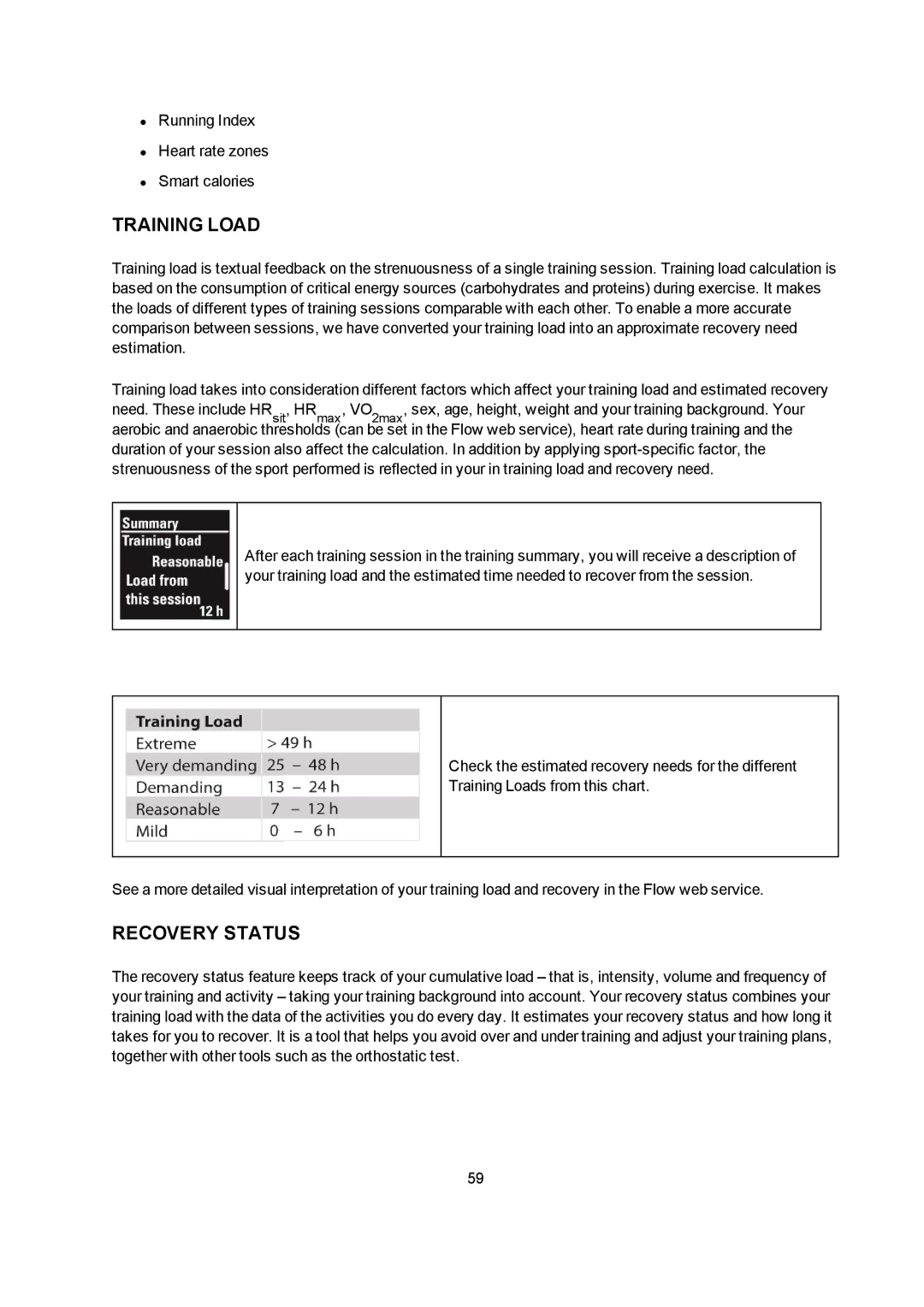
•Running Index
•Heart rate zones
•Smart calories
TRAINING LOAD
Training load is textual feedback on the strenuousness of a single training session. Training load calculation is based on the consumption of critical energy sources (carbohydrates and proteins) during exercise. It makes the loads of different types of training sessions comparable with each other. To enable a more accurate comparison between sessions, we have converted your training load into an approximate recovery need estimation.
Training load takes into consideration different factors which affect your training load and estimated recovery
need. These include HRsit, HRmax, VO2max, sex, age, height, weight and your training background. Your aerobic and anaerobic thresholds (can be set in the Flow web service), heart rate during training and the
duration of your session also affect the calculation. In addition by applying
After each training session in the training summary, you will receive a description of your training load and the estimated time needed to recover from the session.
Check the estimated recovery needs for the different
Training Loads from this chart.
See a more detailed visual interpretation of your training load and recovery in the Flow web service.
RECOVERY STATUS
The recovery status feature keeps track of your cumulative load – that is, intensity, volume and frequency of your training and activity – taking your training background into account. Your recovery status combines your training load with the data of the activities you do every day. It estimates your recovery status and how long it takes for you to recover. It is a tool that helps you avoid over and under training and adjust your training plans, together with other tools such as the orthostatic test.
59
